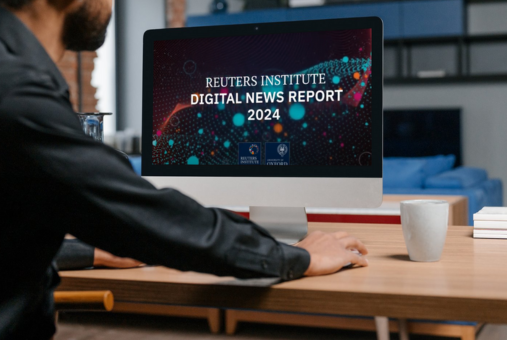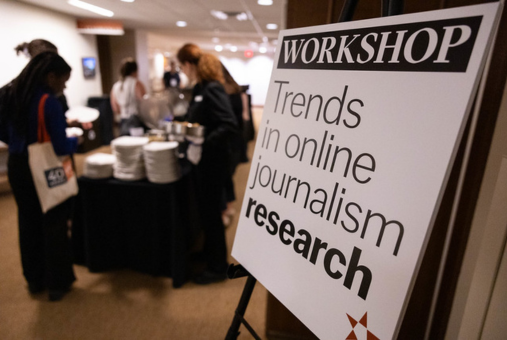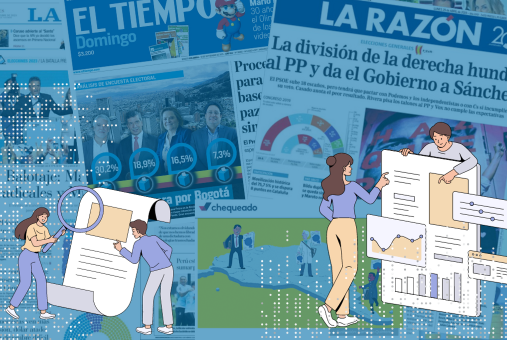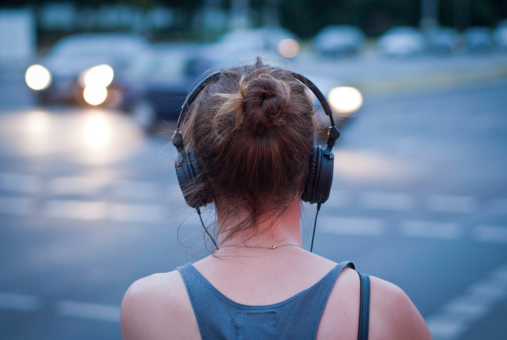
LJR summarizes findings from the Reuters Institute's annual digital news report. These include: readjustments in the way audiences consume news, concerns about misinformation, caution in the use of AI in news, news avoidance at record levels and stagnant subscriptions.

A new UNESCO report confirms what many journalists and researchers have thought: quality journalism is good for democracy, civic engagement and government accountability. Further, public investment in it improves trust from citizens, and promotes human rights and sustainable development.

Journalism scholars discussed building a sustainable future for news and re-imagining connections with audiences during a research breakfast at the 25th International Symposium on Online Journalism (ISOJ) on April 13. Summarizing their research to an early Saturday morning crowd, presenters included Amy Ross Arguedas and Richard Fletcher of the Reuters Institute at the University of Oxford, Sue Robinson of […]

The Reuters Institute has analyzed gender inequality and the percentage of people of color in newsroom leadership since 2020. In Mexico, the number of women in top editorial positions is only 6% and, in Brazil, none of the media outlets analyzed has a person of color as editor in chief.

The report “Journalism, media and technology trends and predictions 2024” from the Reuters Institute predicts that this year, media and journalists in Latin America, and the world, will have to urgently rethink their role and purpose as they face the disruptive power of AI and a super election year.

According to recent research from Ecuador, journalism in Latin America is a profession with invisible psychosocial risk factors, a situation that was aggravated by the COVID-19 pandemic. The main researcher and four journalists explain how to face this reality in daily work.

Most data journalists in Spanish-speaking countries are new to the discipline and have learned on the job, according to new research from a university in Spain. Additionally, most surveyed data journalists in Spain and Latin America are full-time employees and see their professional situation positively.

A study carried out by five Latin American researchers points to the influence of fact-checking labels on social media engagement. Sebastián Valenzuela, one of the authors of the study, told LatAm Journalism Review there is evidence in four countries in the region of a preference for the "true" label in shares.

The podcast market is booming in Latin America, with annual growth expected to reach almost 30% by 2032. Many narrative journalism podcasts are riding the wave. The author of a pioneering study on the subject in Brazil shares techniques to capture listeners' attention, from theater to sources.

Former Brazilian President Bolsonaro's attacks on journalists didn't deter media coverage during his term. Instead, journalists used the criticism as motivation, as shown by a study conducted by researchers from the University of Texas and published in The International Journal of Press/Politics. Interviews with 18 targeted journalists revealed their increased determination, underscoring the resilience of Brazilian journalism in the face of adversity.

The Digital News Report 2023 reveals a declining interest in news in Latin America and the world, as well as a growth in the use of platforms such as TikTok to get information. LatAm Journalism Review (LJR) summarizes findings on news consumption in Argentina, Peru, Chile, Colombia, Mexico, and Brazil.

Brazilian researchers analyzed news headlines about false statements by Jair Bolsonaro on COVID-19 in 2020, and in 60% of the cases the then-president's lines were just reproduced, without contextualization or correction. Researcher Marilia Gehrke spoke to LatAm Journalism Review (LJR) about how this practice contributes to misinformation and undermines journalism’s credibility.